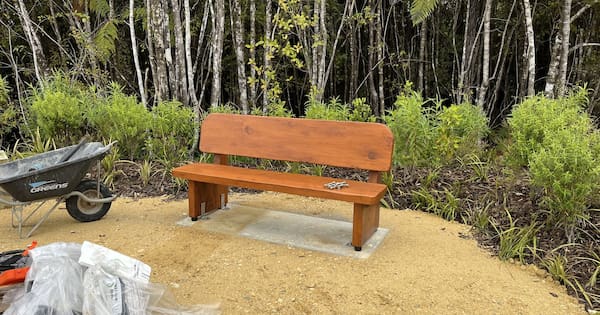
And that is why Anja Klinkert is such a fan of collaborative law to resolve disputes, rather than the more traditional path of litigation.
First introduced in 1990, collaborative law is increasingly being used to manage the emotional, legal and financial aspects of separation, along with resolving estate, family business and employment disputes.
There are now more than 50 trained collaborative professionals in New Zealand, including Ms Klinkert, a collaborative lawyer and mediator, and financial planner and divorce coach Dominique Bergel-Grant.
The pair wanted to educate people that there was an alternative to resolve conflict “rather than running off to a lawyer and ending up in court”, Ms Klinkert said.
“We’ve got a duty not to take people to court. It’s about creating a more peaceful and constructive society. More and more people are taking that on. Nobody wins when you go to court.”
Otago has become the adopted home for both women; originally from Germany, Ms Klinkert came to New Zealand in 1984 and initially planned to study medicine but found her place doing law and mediation.
Ms Bergel-Grant is originally from Sydney and has focused latterly on helping people going through divorce. As part of that, she was introduced to collaborative law by a lawyer in Sydney.
A key part of the collaborative law process was the client remained in control of the outcomes, supported by a team of collaboratively trained professionals, Ms Bergel-Grant said.
A collaborative facilitator assessed whether the matter was suitable for the process and then helped the client build a professional support team — which included a lawyer and could also include other neutral experts such as accountants, business valuers, psychologists and divorce coaches — tailored to the situation.
The focus was on resolution, rather than conflict.
“The best people to resolve the issues, no matter how conflicted the circumstances, are the individuals the conflict surrounds. I like seeing the control remain with the parties,” Ms Bergel-Grant said.
For Ms Klinkert, the form of mediation allows her to be curious.
“When you are curious, you ask questions, people immediately relax and don’t feel stressed and they think creatively and you both enjoy it — that’s curiosity,” she said.
“If you do this in all your practices, whether they’re interactions with your husband, wife, children or colleagues, it’s such a nicer way of being. It’s just being human. That’s what collaboration teaches you.”
It was rewarding to go through a process where a situation got resolved “and it’s not us telling them”. It was about helping them to learn about themselves, she said.
An agreement was signed in the first meeting saying the matter was not going to litigation, which meant everyone was motivated to resolve it, Ms Bergel-Grant said.
She often saw lawyers reaching burnout, particularly in the family law field given the emotional toll it took. Collaborative law was a legitimate way for people to be successful.
Ms Klinkert, whose Staffy dog is a hit with clients, said the meeting space needed to be non-threatening and food was an all-important part of that.
“If you’ve got sandwiches, it’s much more likely for people to reach agreement.”
Court could be unpredictable — there were too many unknowns — and often involved people who were hugely emotional and triggered just by walking into a court room.
“I can feel them trembling in their boots,” she said.
The pair agreed it was often about the clients feeling listened to and there would always be matters where a court would be necessary because a party would not look at options.
“As a facilitator, a key role at the start is interviewing both clients to work out suitability to enter into a collaborative process. Often you can see there’s a path — you see people desperately seeking to be heard and get their points across. There will be people that enjoy the conflict but it’s not a state most of us naturally sit in,” Ms Bergel-Grant said.
It could also resolve matters typically over three to five meetings, rather than waiting months or sometimes years for a starting point.














